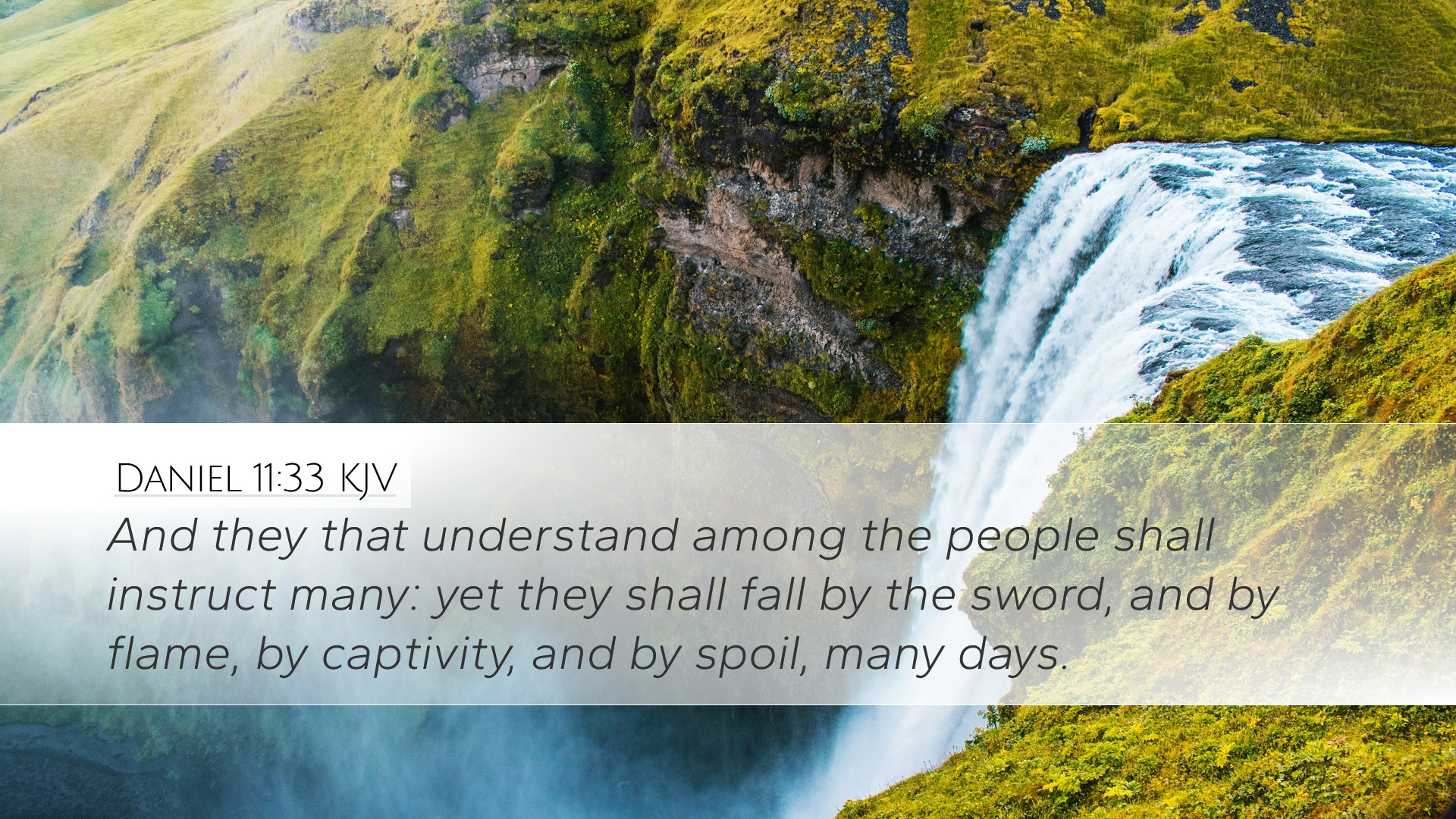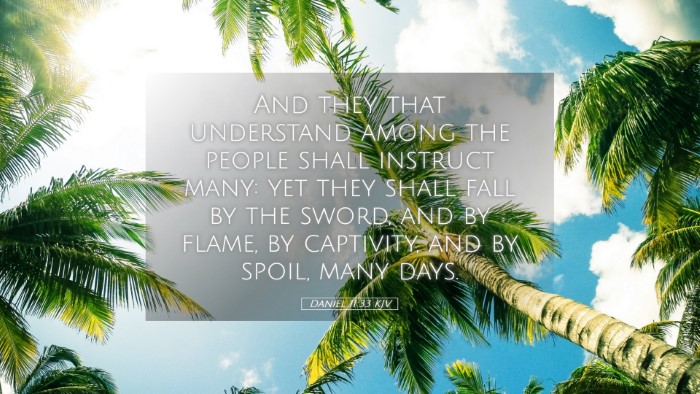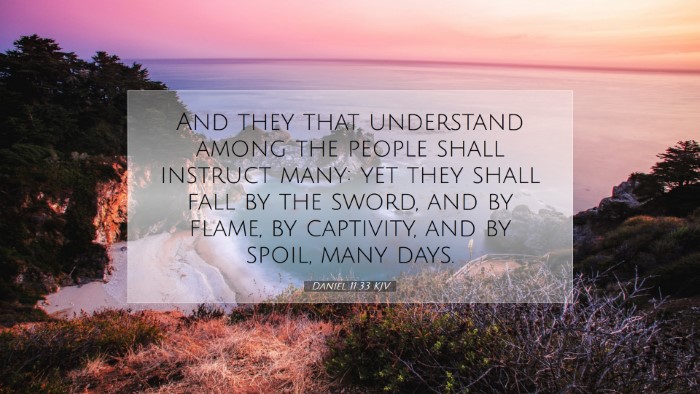Commentary on Daniel 11:33
Introduction
The prophetic chapter of Daniel 11 is a significant passage that encapsulates the struggle between the forces of evil and the faithfulness of God's people throughout the ages. Verse 33 serves as a pivotal point in discussing the trials and tribulations faced by the faithful in times of persecution and conflict. This commentary synthesizes insights from several public domain commentaries to provide a comprehensive understanding of this verse.
Text of Daniel 11:33
“And they that understand among the people shall instruct many: yet they shall fall by the sword, and by flame, by captivity, and by spoil, many days.”
Contextual Background
This verse occurs within a broader prophecy that outlines the history of successive empires and their impacts on the Jewish people. In the context of the Maccabean revolt and the ensuing persecutions, Daniel 11:33 addresses the fate of those who are knowledgeable about God's laws and communal affairs amid significant adversity.
Insights from Commentators
Matthew Henry
Matthew Henry elaborates on the theme of suffering and instruction. He notes that those who are wise—those who "understand"—will be given the task of instructing others. This points to a phenomenon where faithful leaders take on the responsibility of guiding their community through turbulent times. However, he also emphasizes that many will suffer greatly for their faith, noting that "they shall fall by the sword, and by flame," which illustrates the severe trials faced by the faithful.
Albert Barnes
Albert Barnes expounds on the duality of persecution and perseverance. He suggests that while these wise teachers will endure tremendous suffering, their ultimate role is to illuminate the truth for others. Barnes highlights that this mentorship occurs amidst dark times, affirming that their faithfulness leads to both temporal suffering and the advancement of God’s kingdom despite adversity. He asserts that this demonstrates God's sovereignty, as even through suffering, His purpose prevails.
Adam Clarke
Adam Clarke offers profound insights regarding the intellectual and spiritual responsibility of believers. He remarks on the significance of knowledge and understanding in the trials mentioned in this verse. Clarke points out that those possessing such understanding—often referring to prophetic insight—are not merely survivors but catalysts for faith and strength in their communities. He acknowledges their tragic fate as indicative of the broader struggle of the church, but he refuses to dismiss their efforts as futile, recognizing their impact on the faithful remnant.
Theological Implications
The theological implications of Daniel 11:33 are vast and profound. The suffering endured by the faithful is not just a historical reality but a continuing invitation for believers to engage with the world through a lens of God’s sovereignty and providence. The verse invites a reflection on the following themes:
- Suffering for Righteousness: As seen in the lives of the martyrs and throughout church history, suffering for righteousness is a common thread that binds together the faithful.
- Role of Teachers: Teachers in the faith carry the heavy burden of guidance during perilous times, pointing others towards hope and truth amidst chaos.
- God's Sovereignty: The verse emphasizes that even in suffering, God's plan is at work; His purposes cannot be thwarted by human evil.
Practical Applications
This verse encourages leaders and teachers within the Church to remain steadfast in their responsibilities despite challenges. Important applications include:
- Encouragement to Educators: Pastors and teachers are called to instruct and equip their congregations, particularly during challenging times.
- Perseverance in Adversity: The community of faith should find strength and encouragement in knowing that suffering has been a part of the believer's journey since the early church.
- Commitment to Faithfulness: Believers are urged to maintain their commitment to God's word and to the mission of the Church despite external pressures.
Conclusion
Daniel 11:33 serves as a sobering reminder that the path of righteousness often leads through trials and suffering. Yet, it is also a call to action for those who understand, to instruct and support their fellows in the faith. The insights from Matthew Henry, Albert Barnes, and Adam Clarke collectively encourage a stance of resilience and hope in God’s overarching plan, affirming that even in suffering, God's kingdom prevails. For pastors, students, theologians, and Bible scholars, this passage invites both reflection and action: to teach, endure, and to trust in the wisdom and sovereignty of God.


